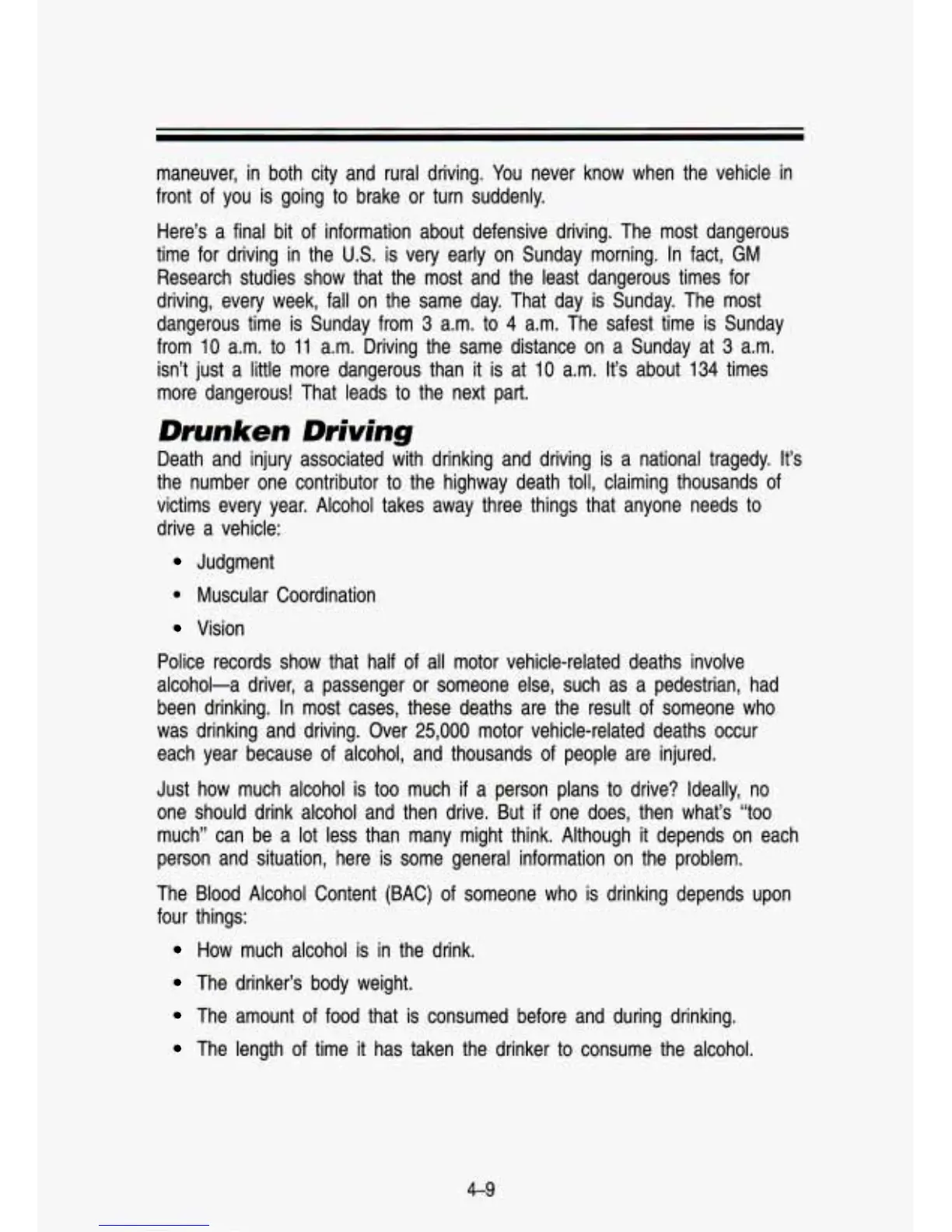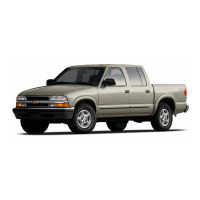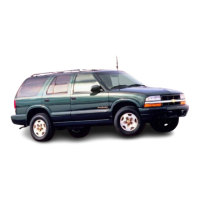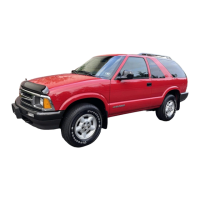maneuver, in both city and rural driving. You never know when the vehicle in
front of you is going to brake or turn suddenly.
Here’s a final bit of information about defensive driving. The most dangerous
time for driving in the
U.S.
is
very early on Sunday morning. In fact,
GM
Research studies show that the most and the least dangerous times for
driving, every week, fall on the same day. That day is Sunday. The most
dangerous time is Sunday from 3 a.m. to 4 a.m. The safest time is Sunday
from
10
a.m. to
11
a.m. Driving the same distance on a Sunday at
3
a.m.
isn’t just a little more dangerous than
it
is at
10
a.m. It’s about 134 times
more dangerous! That leads to the next part.
Drunken Driving
Death and injury associated with drinking and driving is a national tragedy. It’s
the number one contributor to the highway death toll, claiming thousands of
victims every year. Alcohol takes away three things that anyone needs to
drive a vehicle:
Judgment
0
Muscular Coordination
Vision
Police records show that half of all motor vehicle-related deaths involve
alcohol-a driver, a passenger or someone else, such as a pedestrian, had
been drinking. In most cases, these deaths are the result of someone who
was drinking and driving. Over
25,000
motor vehicle-related deaths occur
each year because of alcohol, and thousands
of
people are injured.
Just how much alcohol is too much
if
a person plans to drive? Ideally, no
one should drink alcohol and then drive. But
if
one does, then what’s “too
much’’ can be a lot less than many might think. Although
it
depends on each
person and situation, here is some general information on the problem.
The Blood Alcohol Content (BAC) of someone who is drinking depends upon
four things:
How much alcohol
is
in the drink.
The drinker’s body weight.
The amount of food that is consumed before and during drinking.
The length
of
time it has taken the drinker to consume the alcohol.
4-9

